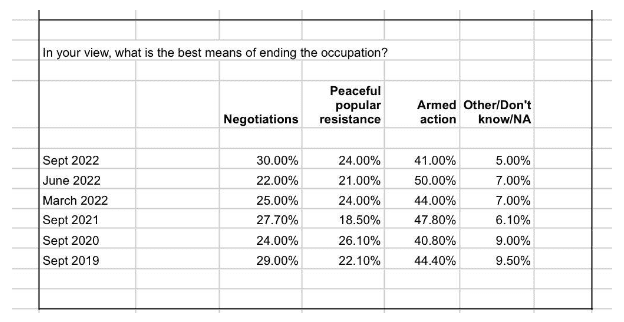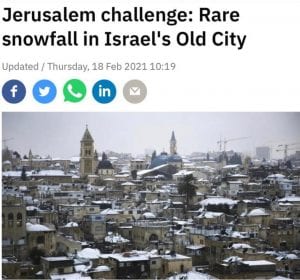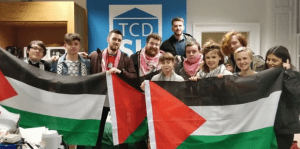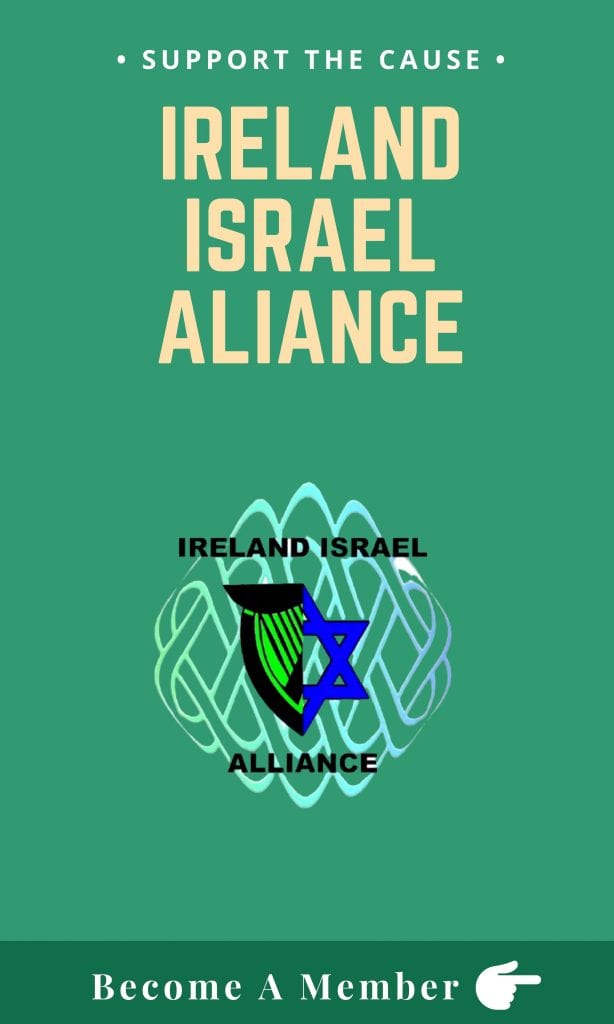It’s hard to talk about peace this week.
It’s hard to talk about peace when days ago two small Jewish boys were deliberately run over and killed at a Jerusalem bus stop by a Palestinian man; when children in Gaza laughed and handed out sweets to celebrate; when a cartoonist shared a vile depiction of a Palestinian family tucking into a meal made of the head of the young Jewish man killed in the same attack.
It’s hard to talk about peace when young Arab Israeli men interviewed in Jerusalem claim to wish for “Hamas and riots”, and surveys (see footnote) show that to “end the occupation” only ⅓ of Palestinians support negotiations and up to ½ prefer armed resistance.
And yet…
Supporters of Israel are regularly accused of painting all Palestinians in a negative light, as either terrorists or supporters of terrorism. In fact, we’re all too well aware that it is extremely difficult for Palestinians to talk of peace or coexistence, for fear of being accused of “collaborating with the enemy”. This blog will highlight some of the better known cases.
Bassem Eid

Bassem Eid is probably the best-known Palestinian peace activist. He was born in Jordanian-occupied Jerusalem and grew up in what became Shuafat refugee camp. A B’tselem investigator with a reputation for scrupulous research during the first Intifada, in 1996 he was briefly arrested by Yasser Arafat’s Presidential Guard for revealing human rights violations committed by the Palestinian Authority. He went on to establish the Palestinian Human Rights Monitoring Group to record human rights violations perpetrated against Palestinians by the Palestinian security services.
He is regularly called a traitor and a collaborator and receives death threats as a result of his work. Examples include one incident that actually occurred during the course of a lecture at the University of Chicago, and another as he left the St Louis (Missouri) Convention Centre after speaking to oppose an anti-Israel resolution at a General Assembly of the Presbyterian Church.
He is a critic of both UNRWA and the BDS movement and now travels the world giving lectures on the conflict. In 2019 he contributed a blog article to the IIA website titled “The Palestinian case against BDS”.
Professor Mohammed S. Dajani Daoudi

Professor Dajani is a Jerusalemite academic and peacebuilder with two doctorate degrees, in government (University of South Carolina, Columbia, SC, 1981) and political science (University of Texas, Austin, Texas, 1984). He first came to international recognition and public attention in 2014 when he brought a group of Palestinian students from Al-Quds University on a visit to the Nazi death camp in Auschwitz, Poland to teach them empathy, tolerance and diversity. As a result of the trip, he was called a traitor and suffered intimidation and death threats. His car was set on fire outside his house. Faced with harassment from fellow professors and lack of support from the University, he resigned two months after the trip.
Dajani moved to the United States in 2015 where he served as a fellow at the Washington Institute for Near East Policy. He is a founder of the “Wasatia Movement”, a “moderate Islamic initiative” calling for “coexistence and cooperation with other religions.” He fights against the boycott and “anti-normalisation” tactics of the BDS movement, arguing that normalisation to build trust and end the occupation is an essential part of the peace process.
Dajani was a contributor to a 2018 report by Dan Diker of the Jerusalem Centre for Public Affairs, Defeating Denormalization: Shared Palestinian and Israeli Perspectives on a New Path to Peace. Dajani outlined his vision in a chapter titled Wasatia: The Straight Path from Denormalization to Reconciliation:
“Our aspiration is not only to create a moderate Palestinian Islamic movement that calls for peace, mutual understanding and good relations among Muslims, but also set the climate for a peaceful resolution of the conflict with Israel. Wasatia also calls for the establishment of an independent Palestinian state that is democratic, secular, and committed to social justice, economic welfare, and the liberal values of human rights, equality, soft dialogue, pluralism, and free speech…”
His website sets out his “Dajani Peace Plan”, a two state plan with recommendations for solving the issues of refugees and Jerusalem. In March 2022 he visited Poland to take part in the annual International March of the Living along with the first Arab group participants as part of a delegation organised by Sharaka (“Partnership”), an Israeli-Emirati NGO established in 2020 to promote dialogue between Israel and the Arab World. Also in 2022, he was shortlisted by a jury for the Simon Wiesenthal Centre’s Prize for Civic Engagement to Combat Antisemitism. The winner will be announced in March 2023.
Dajani is based in Jerusalem and gives talks on his Wasatia policy and peace plan to visiting academic groups.
The examples of Bassam Eid and Mohammed Dajani demonstrate that peace activism and talk of coexistence with Israel is dangerous for Palestinians, even those with a relatively well-known professional profile. For others, it is even more risky.
Rami Aman

Rami Aman was born in Gaza and in 2010 founded the Gaza Youth Committee, an organisation that aims to connect Gazans with the outside world via the internet. The Gaza Youth Committee has held dozens of talks with Israelis, Americans and Europeans under an initiative called Skype with Your Enemy. He had already been called in by Hamas multiple times for questioning; then on March 19, 2019 he arranged a conference call in which ten members of the Gaza Youth Committee spoke to some 200 Israelis. Two days later he was arrested – grabbed off the street and blindfolded – and questioned by Hamas before being released, his mobile phone confiscated.
Then in April 2020, as the Covid lockdown went into force, he organised another Zoom call between Palestinian and Israeli peace activists. The event was publicly criticised by a former Amnesty researcher Hind Khoudari, who shockingly tagged Hamas officials in a Facebook post about Aman!

Rami Aman spent 7 months in Hamas custody as a result. He was charged with “weakening the revolutionary spirit” and released on a suspended sentence in October 2020 only after a sustained campaign by the NGO UNWatch. However, he paid a high price for his peace activism: in addition to months of confinement and torture, Hamas conditioned his release on his divorce from his wife, a daughter of a prominent Hamas member.
In November 2021 he was fundraising in Gaza for his “One bag, one child, one hope” initiative to provide school bags and school supplies to children in Gaza. He was supported in this by an Israeli woman, Adele Raemer (of whom more later), who runs a Facebook page called “Life on the border with Gaza – things people may not know (but should)”, who had taken part in some of his Zoom calls.
By December 2021 he was living in Cairo where he is, in his words, “resting and planning”.
A shopkeeper in the West Bank
On January 26, the IDF entered Jenin to arrest a known terror cell. A gun battle ensued, with Palestinian gunmen firing from rooftops and balconies. In total, 8 Palestinian terrorists were killed, their affiliations with Hamas and Palestinian Islamic Jihad recognised on social media. An innocent Palestinian woman was also killed in the crossfire
The following day, Facebook posts showed an attack by Palestinians on the premises of a shopkeeper who dared to speak out against terrorism; for calling the terrorists “dead animals”, his shop was smashed up by local men and children.
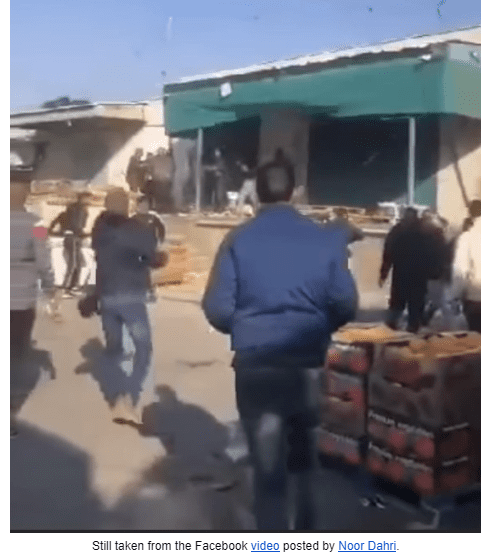
Anonymous Palestinians in Gaza
Adele Raemer, mentioned above, uses her “Life on the border” Facebook page to document communications between Gazans and Israelis which evidence a willingness to reach out but also the need to maintain anonymity:
First, news of a photography exhibition organised by an Israeli photographer Batia Holin who lives in a kibbutz on the border with the Gaza Strip called Kfar Aza. She is exhibiting her photos and those of “Mahmoud” – the Gaza photographer must hide his name, using a pseudonym for safety reasons. Second, a conversation between Batia and someone in Gaza – again, published with the name of the Gaza person hidden.
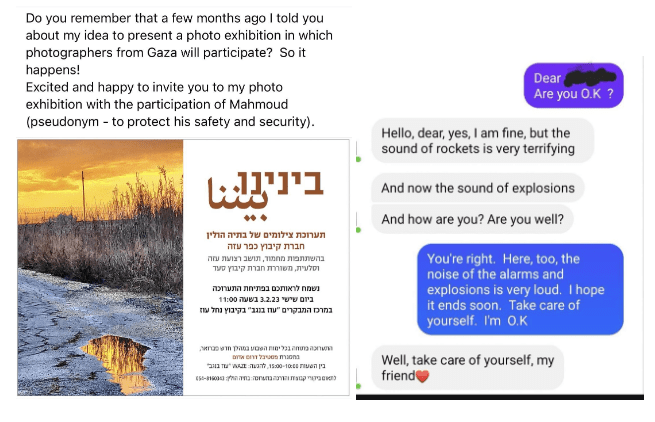
Each of the Palestinians named above, and Adele Raemer, were contacted for permission to be included here, Adele sent an extra paragraph, saying:
Gaza and Israel are often in a state of war, however my enemies are the Hamas and other terror organisations. The people of Gaza – those who just want to live their lives normally and would be more than happy to interact with their neighbours in Israel, are NOT my enemies. The regular citizens in Gaza are held hostage by the Hamas, as are those of us who live in Israel – especially us on the border who absorb most of the terror organisations’ rocket and mortar attacks. This is the reason why these people-to-people connections across the border are so important. It’s also why the Hamas are so threatened by people like Rami, who are willing to risk their lives and safety in order to educate children and young adults that Israelis are NOT their enemies. (Keep in mind that most Gazans under the age of 30 have never been able to interact with Israelis and if they have, it has been with an Israeli dressed in an army uniform holding a gun).
Conclusion
The reality is that Palestinians risk a great deal if they attempt to break the “anti-normalisation” rules which are imposed by both Hamas and the Palestinian Authority and supported by a great many Palestinians. At a minimum, they face being cut out of their families. Death threats, property damage, imprisonment and torture, banishment and physical danger including death are all possibilities for anyone who dares to attempt normalisation.
By Teresa Trainor
With thanks to all those included here for their permission to write about them. Shukran and Todah!
Further Reading
Bassem Eid http://www.bassemeid.com/
The Dajani Peace Plan https://www.dajanipeaceplan.org/
A Palestinian Student Defends Her Visit to Auschwitz
Gaza Activist: After Lengthy Torture, Hamas Forced Me to Divorce My Wife
Both sides of the fence: a photo connect:
https://blogs.timesofisrael.com/both-sides-of-the-fence-a-photo-connect/
Footnote
Summary taken from a series of surveys by the Palestinian Centre for Policy and Survey Research
